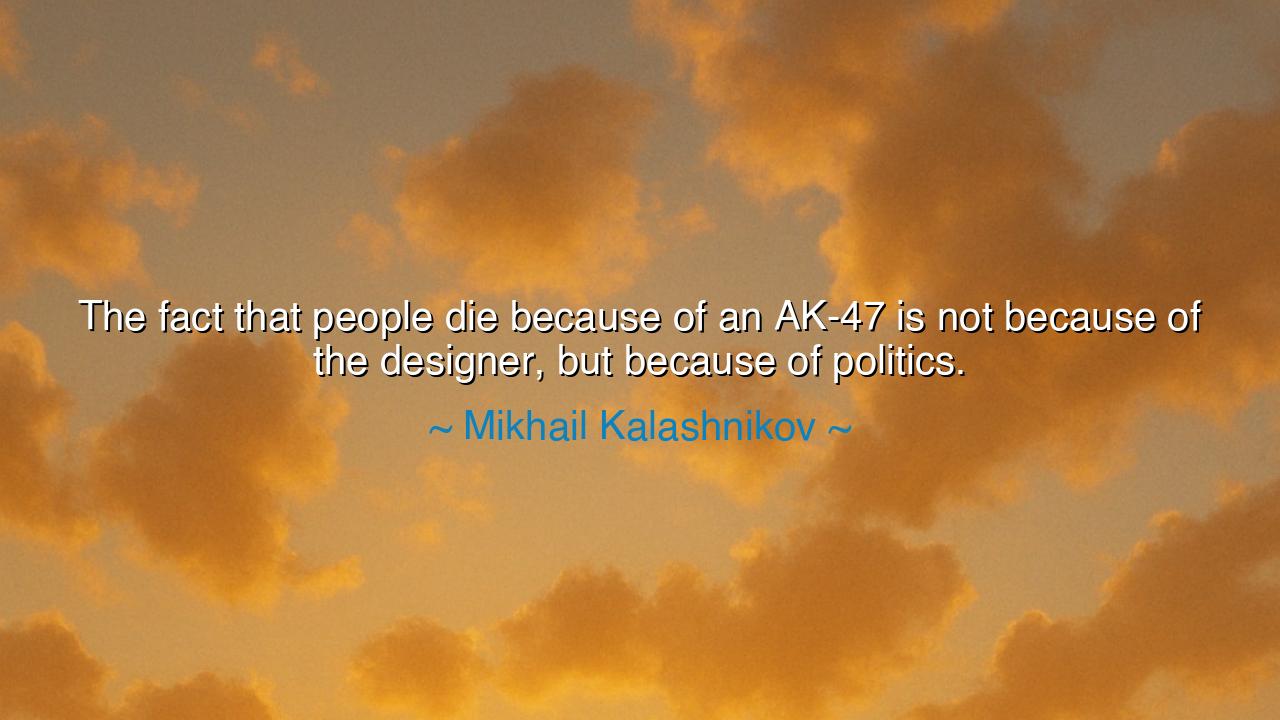
The fact that people die because of an AK-47 is not because of
The fact that people die because of an AK-47 is not because of the designer, but because of politics.






The words of Mikhail Kalashnikov — “The fact that people die because of an AK-47 is not because of the designer, but because of politics” — resound with the weight of both sorrow and defense. In them, the maker of one of the most infamous weapons in history disclaims personal guilt, placing the burden not on invention, but on the hands that wield and the systems that command. For Kalashnikov sought to craft a tool of defense for his homeland, yet that tool was taken by the tides of politics and spread across the earth as an instrument of war.
At the heart of this saying is the question of responsibility. Does the designer bear the sins of those who misuse his creation, or do those sins belong to the rulers and ideologies that direct its fire? Kalashnikov insists the latter: that invention in itself is not evil, but the corruption of power and ambition twists invention into destruction. Thus, the AK-47 is not in itself guilty; it is the politics of nations, the greed of leaders, and the hunger for dominance that write death into its story.
History has seen this truth before. Alfred Nobel, who gave the world dynamite, intended it for the building of roads and the breaking of mountains. Yet it became a weapon of war, leaving him haunted by its misuse. His answer was the Nobel Prizes, a legacy of peace to balance the blood. Kalashnikov’s defense carries the same echo: that inventors create, but politics decides how creation is used — for construction or for ruin, for liberation or for oppression.
And yet, Kalashnikov’s words also reveal the tragic entanglement between invention and power. The AK-47, simple, durable, and reliable, became the weapon of choice not only for armies but for rebels, insurgents, and tyrants. It armed both liberators and despots, defenders of nations and destroyers of villages. In this lies the duality of human progress: no tool is pure, for its morality is forged in the intent of those who wield it.
Let future generations learn this wisdom: weapons themselves do not choose their targets, nor does steel dictate justice or injustice. It is politics — the will of rulers, the divisions of nations, the greed of men — that turns invention into bloodshed. The lesson of Kalashnikov’s words is not to despise invention, but to guard the spirit that directs it. For the fate of the world lies not only in what is made, but in how mankind chooses to use it.






AAdministratorAdministrator
Welcome, honored guests. Please leave a comment, we will respond soon